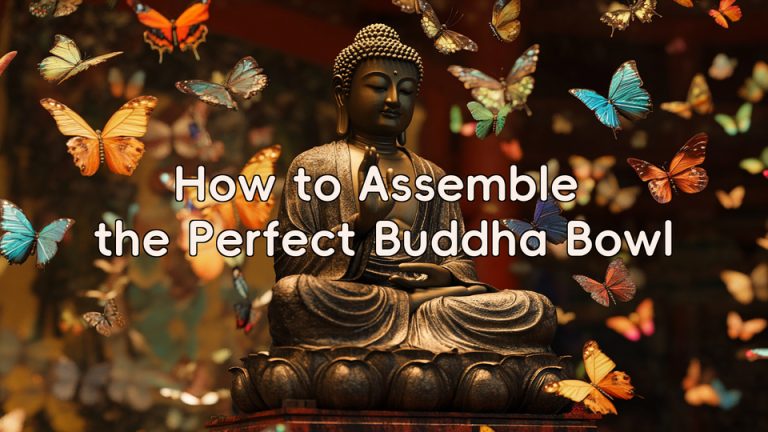How to Understand the Buddha’s Four Noble Truths|A Guide to Overcoming Suffering and Achieving Liberation
In the serene depths of meditation, the Buddha unraveled profound insights that have echoed through the corridors of human consciousness for centuries. It is said that the Buddha meditated on four truths that articulate the intricacies of human suffering and the pathways to liberation. The essence of these truths carries weighty implications for anyone seeking mindfulness and personal growth. Each of these truths serves as a guiding star in the tumultuous seas of existence, offering clarity and guidance on the journey of life.
The First Truth: The Reality of Suffering
The first truth, known as Dukkha, emphasizes the inherent nature of suffering in existence. Suffering is not merely the acute pain of loss or grief; it encompasses the subtle dissatisfaction that lingers at the edges of our experiences. Life, with its unending cycles of birth, aging, and death, brings forth the understanding that suffering is a shared human experience. In the context of mindfulness, recognizing this truth allows us to cultivate a compassionate awareness of our emotions and experiences.
When we accept that suffering is part of the human condition, we can begin to approach our struggles with gentleness rather than resistance. This acceptance becomes a powerful catalyst for personal growth, encouraging us to confront our issues with an open heart, free from judgment or denial. The implications of the first truth ripple outward into our daily lives. It empowers us to embrace vulnerability, fostering deeper connections with others who share similar experiences. As we resonate with the suffering of others, we cultivate empathy and understanding, reinforcing the significance of community as a resource for healing and support. In the grand tapestry of existence, the recognition that the Buddha meditated on four truths invites us to acknowledge our pain, transforming it into a source of wisdom and collective resilience.
The Second Truth: The Origin of Suffering
The second truth, Samudaya, delves into the origins of suffering, illuminating the cravings and attachments that bind us. Our insatiable desires—whether for material possessions, fleeting pleasures, or the affirmation of our ego—often lead us into a cycle of discontent. These cravings arise from ignorance and a misunderstanding of the self and the world. Mindfulness practice encourages us to become aware of these attachments, allowing them to surface without attachment or aversion. Recognizing the nature of our desires helps us dismantle the false narratives we create, revealing the transient nature of happiness derived from external sources.
When we explore the roots of our suffering, we begin a journey toward liberation. This truth resonates profoundly in contemporary life, where advertising cleverly manipulates our desires, leading us to believe that happiness can be purchased. By observing our cravings and understanding their transient nature, we can cultivate an inner calm that remains undisturbed by external circumstances. The mindfulness derived from this second truth fosters a sense of freedom, breaking the chains of dependence on things outside ourselves and allowing authentic joy to arise from within.
The Third Truth: The Cessation of Suffering
The third truth, Nirodha, articulates that the cessation of suffering is not only possible but also achievable. This truth signifies the profound realization that, by relinquishing attachment and craving, we can attain a state of peace and liberation. The Buddha meditated on four truths to illuminate the path toward this cessation, revealing that such peace is not a distant goal but a present possibility. Engaging in mindfulness and letting go of attachments require a deep commitment to self-exploration and self-compassion.
By practicing mindful observation of our thoughts and emotions, we can create space for healing and transformation. This space allows us to acknowledge our suffering without identifying with it, detaching ourselves from the weight of our experiences. As we cultivate a deeper understanding of this truth, we may find that what once felt insurmountable becomes navigable. Integrating the cessation of suffering into our daily lives means developing practices that nurture peace, such as meditation, breathing exercises, or simple moments of reflection. By acknowledging the impermanence of our struggles, we invite a profound sense of resilience and empowerment, fostering personal growth rooted in self-awareness.
The Fourth Truth: The Path to Liberation
The fourth truth, Magga, outlines the Eightfold Path that guides us toward liberation. This path encompasses wisdom, ethical conduct, and mental discipline, offering a comprehensive framework for living a mindful and purposeful life. It is through the application of this path that the Buddha unveiled the possibility of transcending suffering and achieving enlightenment. Mindfulness is intrinsic to each aspect of the Eightfold Path: Right Understanding, Right Intention, Right Speech, Right Action, Right Livelihood, Right Effort, Right Mindfulness, and Right Concentration. Together, they weave a holistic approach to personal and spiritual development, encouraging a harmonious existence that aligns intention with action.
The implications of this path are vast. By integrating its principles into our daily routines, we cultivate not only personal well-being but also social responsibility. The ethical conduct emphasized in the path nurtures respect and compassion for all beings, fostering quality relationships that elevate our communal experiences. As we advance through the Eightfold Path, we cultivate mindfulness that ripples outward, positively impacting not just ourselves, but our families, communities, and the world at large.
The Transformative Power of the Four Truths
Contemplating the profundity of the Buddha meditated on four truths reveals insights that resonate deeply within our souls. Each truth invites us to confront the nature of suffering, elucidate its origins, explore the path to cessation, and ultimately embrace the transformative journey toward liberation. Engaging with these truths fosters a mindful existence, marrying awareness with intention and ultimately guiding us on a path of profound personal growth.
As we traverse the complexities of life, the teachings derived from the four truths provide a beacon of hope and wisdom, unraveling the intricacies of our experiences and reaffirming our interconnectedness. By embodying the lessons of the Buddha’s meditation, we embark on a meaningful journey toward understanding, compassion, and lasting peace. These truths stand as enduring reminders that through mindfulness, we can navigate the human experience with grace and resilience, cultivating a life echoed in profound insight and authentic joy.




